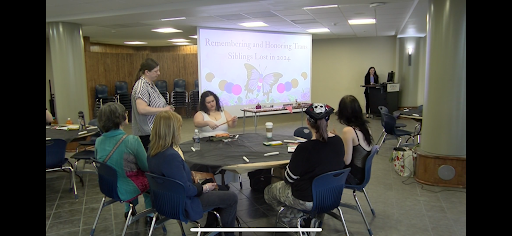Nicholas Souza, News/Online Editor
President Todd S. Hutton issued an interoffice memorandum to Utica College staff, faculty and administration on April 4 explaining a recent deficit in the college’s budget. Due to unexpected operating and non-operating expenses, the college is facing a larger deficit than previously expected – jeopardizing their standing with the U.S. Department of Education’s requirement for financial health.
The college’s budget is a very complicated process but in short, the budget is split into operating and non-operating expenses. The operating activities are what most people think of when they hear the word budget, which comprises the college’s revenue and expenses. These activities are what the college has under its control.
The second component is non-operating activities that comprise finances that the college cannot control. This includes the impact of market fluctuations on the college’s endowment investments, liabilities the college must claim on financials such as post-retirement benefits, and changes in rules can affect how these liabilities are assessed.
These two aspects are combined to come up with the U.S. Department of Education’s requirement for financial health or “DOE ratio.” Many organizations such as the NAICU (National Association of Independent Colleges and Universities) and NACUBO (National Association of College and University Business Officers) have called into question the validity of this ratio due to the inclusion of non-operating activities that institutions cannot control.
Another important aspect to consider is that a deficit is not unheard of when it comes to UC’s budget. Many institutions approve budgets with the expectation that they will run a deficit. The last budget the board approved did actually have a deficit but still ensured that the school would maintain a positive DOE ratio.
The thing that makes this budget deficit different is that the deficit is larger than originally projected. The original projected operating deficit was around $900,000 but recent projections put the deficit at $1.2 million.
This is a result of a shortfall in enrollment numbers for the spring semester and a downturn in the market at the beginning of the year that affected the college’s investments. The tuition reset is not the reason for UC’s increased deficit.
“Please be clear that our current fiscal situation has nothing to do with the tuition reset; we would be dealing with these issues regardless of whether the tuition reset were scheduled to begin,” Hutton said in his memorandum. “However, there is an imperative to finish the current year in a position of financial stability, since 2016-2017 will be an investment year as we cover the costs of reducing tuition until revenues from increased enrollments exceed those costs.”
Some other factors that influenced the budget deficit were the string of squirrel attacks that plagued the college’s power system late last year and unexpected maintenance to the pool. The mild winter, however, was positive for UC because it saved in utility costs.
The DOE ratio is not the only ratio the college must meet. The college’s banking partners also have a ratio to determine financial health, but this ratio greatly differs from the DOE ratio – non-operating activities. The college’s banking partners do not include non-operating activities when calculating an institution’s financial health due to the realization that institutions cannot control this aspect. Therefore, an institution could have a positive banking ratio but a negative DOE ratio. UC’s DOE ratio for 2013-2014 is a positive 2.2 composite score.
“Recognizing that the Department of Education ratio has some imperfections because of the inclusion of these non-operating items, it’s still a metric that the college must strive to meet,” Vice President of Financial Affair Pamela Salmon said.
If UC does not meet the necessary requirements with regards to the DOE ratio, it could have an effect on federal funding and additional oversight. While there is concern that this deficit may jeopardize the college’s DOE ratio, they are confident the school will overcome this deficit by the market rebounding and closely monitoring the school’s spending.
There has been a misconception circulating campus that UC is implementing a spending freeze. This is incorrect in that the administration has just asked the college to make smarter decisions. Scaling back on travel expenses is one way they are making smarter decisions. UC budgets about $1.5 million in travel expenses that involve student recruitment, student research, faculty development, and administrative travel.
While the school is facing this deficit, the college’s future financial stability looks positive due to an increase in freshmen and transfer applications, and the recent lift of the enrollment cap on UC’s Syracuse ABSN program.
Due to the complexity of this issue, a town hall meeting has been scheduled for Tuesday, May 10 at 2 p.m where incoming president, Laura Casamento, and Hutton will address this year’s budget, review the 2016-2017 budget and discuss how the college plans to implement more prudent stewardship.
The new budget will be submitted to the Board of Trustees during the May meeting where administration expects it will be approved.








































































































































